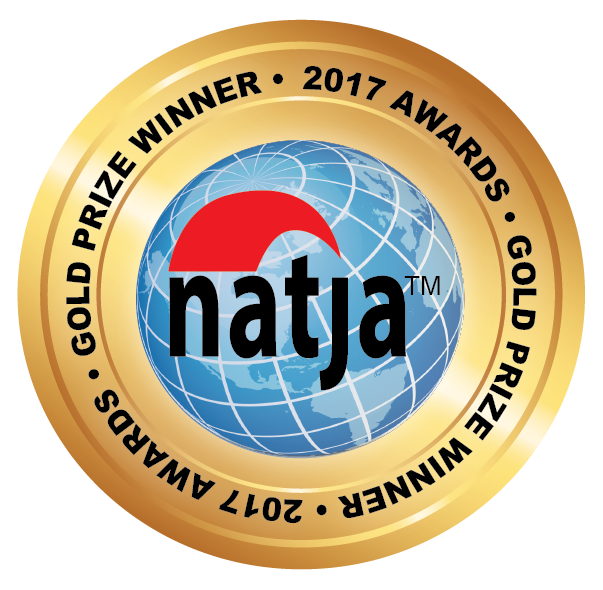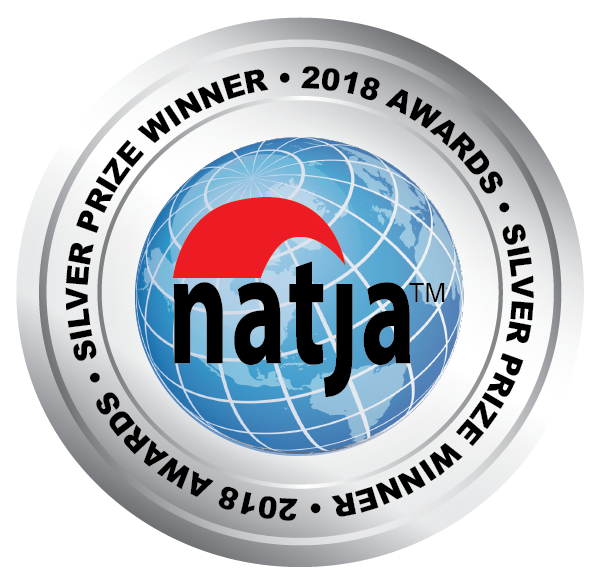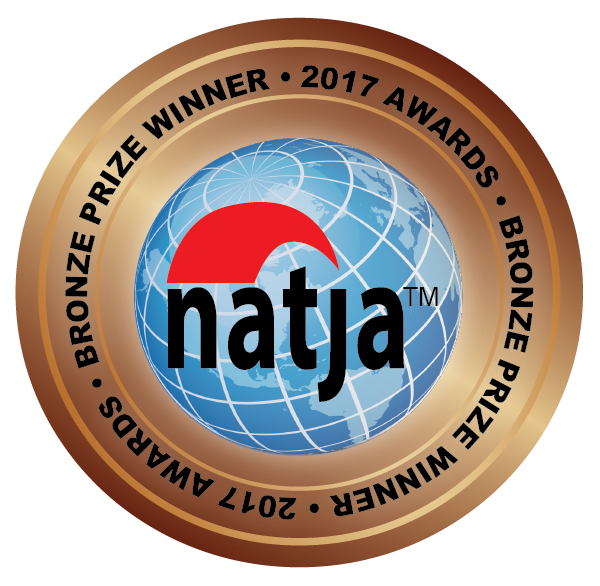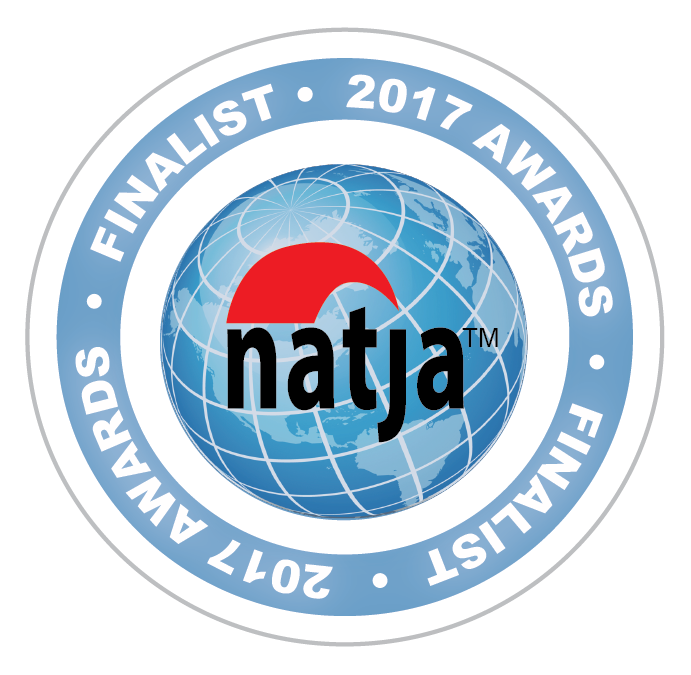Saving money is what drew us in, initially. We’ve been traveling for 18 months, 13 countries, in perpetual motion. We’re experiencing so much but, frankly, we’re exhausted. And grossly over budget.
When fellow travelers suggest housesitting, we shrug it off. After all, we sold our own house to embark on this grand adventure, free and unburdened. The responsibility—caring for a stranger’s home—seems… well, like a step backwards.
But the value equation is becoming irresistible. I care for your home and pets, you provide me with a free place to stay.
A listing for a villa on southern Spain’s Costal del Sol soon catches our eye.
The hosts will be away for 3 months. Three months, imagine that—time to dig in and really experience a culture.
The profile images are mesmerizing. Terrace overlooking a pool’s blue waters, only overshadowed by deep blue Mediterranean just beyond. “Is that Gibraltar?” Matt asks, about the giant rock looming just beyond.
The kitchen appears modern with enormous windows. I imagine gazing to the sea while hacking my way through Spanish recipes. The garden is lush, bursting with hibiscus blooms and lavender.
The description is also dreamy. (Well, with one exception, but we’ll get to that in a minute.) Three bedrooms, perched on a hill, mere minutes from a secluded beach. And the weather? Europe’s warmest winter temperatures and long days of sunlight.
Existing in this paradise requires caring for the casa, plus three dogs. Here’s the catch—there’s also a bird. We know less than nada about bird care.
During a Skype session with hosts Mick and Mandi, Brits and long-time residents of Spain, we hear Sydney the bird chirping in the background as we learn more about the gated yard where the dogs roam freely. Two, Cello and Banjo, are easy-peasy. The third is a problem child—her name is Phoebe.
“We call Phoebe “Houdini” because she’s so tricky.”
“She’s a love, but be warned, she’s a handful.”
They suggest we arrive early to get familiar. How can we resist? We’ve visited Andalucía before and always leave wanting more. This time around, we are to get more than ever imagined.
Language Barriers
Our Spanish skills can best be described as “restaurant-centric.” We can order tortilla de espana, a yummy egg specialty, and copa de vino blanco, and understand directions to el bano, especially when accompanied by pointing.
And that pretty well exhausts our repertoire. We realize more domestic topics may be a stretch. Mick and Mandi are fluent and encourage us to practice daily. But, they assure us, we will be fine. This region is a haven for Brits, after all.
As Mick drives us around, we marvel at the cultural stew. Our two nearest villages, Sabinillas and Playa Guadiaro, bustle with tapas joints and beach bars known as chirinquitos. We also spy Irish pubs, Indian, and Moroccan restaurants. Mandi points out an English bookstore as well as a fish and chips shop.
“Some say the best chippie on Costa del Sol!”
We head inland into rolling hills of Seuss-like cork trees. Through the car’s open windows, we smell citrus kilometres before spotting groves. Hundreds of bright orange orbs fill our vision around every curve.
“You’ll never hurt for fresh-squeezed juice.”
As he navigates the winding roads, we listen to a local station’s British DJ announce upcoming events. It’s early December and villages will soon celebrate Navidad and Epiphany, or Three Kings’ Day.
We reach a hilltop and the ancient village of Gaucin materializes. Mick says dozens of white villages, or pueblos blancos, populate the area. He raises his voice over the weather report to point out Moorish details in the architecture. If the forecast mentions rain, we are too in awe to notice.
Natural Phenomenon
We walk the couple to the waiting car and assure them all will be well. We will take care of your home and pets like our own, we say.
Immediately, we focus on the dogs, reassuring them too, and try our hand at cooing with Sydney as Mandi often does. The bird’s colours are vibrant and noises, surprisingly, melodious. And she’s funny. Who knew birds have such personality?
I lay out tapas of sardines, manchego, and green olives, glancing up occasionally to take in that deep blue view. Matt pops a cork—decent cava purchased for 2 euros. We marvel at how little money it takes to stock the fridge.
We move to the terrace to toast our hosts who, oddly, we already miss. The dogs each choose a lounging spot in shade. We laugh because even Phoebe seems relaxed. As the sun sets—this explosion of pink and purple radiating across the sky just above The Rock—we see faint twinkling across Gibraltar’s Strait and realize those lights are Africa, so close it looks like we could swim there.
This is paradise, we say, as it sinks in. For three months, it belongs to us.
48 hours later, rain begins. Pounding rain that doesn’t let up. Southern Spain is receiving the worst flooding in 30 years. Homes are washed away, businesses are destroyed, lives are lost.
We are without power and water and turn to neighbours, who are dealing with their own outages and damage. They call utilities and kindly offer assistance. For many locals, it will take much, much longer to recover.
The sense of shock is visceral. Yet we witness the community rallying to help those in need. Volunteers work side-by-side with the owner of a popular chirinquito to salvage what’s left in the rubble. Locals jump into action to rescue so many animals in distress. We spend afternoons cleaning the beach. Filling bag after bag with plastic water and soda bottles washed ashore onto these famed coastal sands. It’s a small gesture, yet somehow it makes us feel like we belong. Like we were meant to be here during this time, and this is our role.
We are grateful for the generosity of neighbours, no longer strangers, and that house and pets are okay. We have no way of knowing it is another natural phenomenon that will soon rock our new home.
Phoebe
Phoebe is now fully living up to expectations. Have I mentioned she still wears a plastic cone from an injury before we arrived? It’s her final checkup when we meet the vet, simply known as Andres. Andres speaks a sliver of English and says he has treated Phoebe many times.
“I like Phoebe. Phoebe, good dog.”
As we leave, he adds, Hasta luego, see you soon, and smiles brightly. We both feel a pang of foreshadowing but shake it off.
Making dinner, Matt turns his back from the countertop for seconds. A fish fillet disappears. We don’t understand how she jumped so high, especially given the cone. Houdini.
Somehow, regularly she opens the heavy lid on the kitchen garbage and fishes out all the good bits, cone no obstacle. Houdini.
We are slightly annoyed by her antics, but also entertained. She’s crafty, that Phoebe.
It’s now Sunday and I am doing yoga in the living room, breeze flowing through open doors. Phoebe jumps on my mat, as always. As I struggle back into down dog pose, I notice blood. I yell for Matt, who coaxes her into rolling over and we spot the puncture. We can’t comprehend what’s happened but know it looks serious. Matt searches the yard for clues while I call the vet’s emergency number.
I hang up on the third ring when I realize I don’t have language to explain. Quickly, I turn to Google Translate for words. Accident. Need Vet. Immediately.
By the time I pick up the phone again, Matt has found the injury’s source. She impaled herself on a metal post while attempting to jump a fence separating the pool. Somehow, she wiggled free.
Thirty minutes later, Matt places her gently on a cold metal table. The vet looks into the wound’s deepness and says, Serious. Muy.
We call Mick and Mandi and they say, do whatever it takes. Phoebe immediately undergoes surgery. Miraculously, in days, she is bouncing around Andres’ like nothing has happened. We may not catch every word, but understand when he says she would have died if not treated quickly.
Slowly, he gives instructions for care. We are to cover the wound in cream daily, feed her antibiotics, and keep her calm. The last bit seems an overwhelming feat. The three of us return home, Phoebe once again in cone.
Connection
Every few days for six weeks, we are at Andres’. We learn more veterinary Spanish and converse more easily with locals in the waiting room. A dog in a cone is some kind of icebreaker.
We see these new friends around town and inquire about their dog's lymphoma or cat's injured paw. And, they ask about our dog. We find this connection overcomes any language barrier.
As Phoebe heals, we all begin to experience more freedom. We venture out every Friday for market day to load up on fresh catch and veggies, then return home to cook. My paella is improving and we are both experimenting with smoked paprika and Spanish spices.
Some days, I can’t drag myself away, even to the beach. I have fallen head over heels for Sydney’s lovely sounds, the bird that once gave me pause. We’ve also bonded with that loveable rogue Phoebe—Cello and Banjo too.
I come across the checklist I had scribbled during our first week here—all the places we would visit and things we would experience. Hiking Gibraltar, taking the ferry to Tangier, exploring those pueblos blancos. The list is long and I realize we will only check off a few must-sees. Surprisingly, this no longer seems important.
Instead, we explore every nearby tapas bar until we find a favourite, a lively place with specials scribbled in chalk.
The area’s daily rhythms are now our own—afternoon siestas and late-night suppers. I even understand the bus schedule, a feat that once seemed impossible. We no longer feel like travelers, really. We feel connected, somehow deeply, and grounded.
We have three weeks until this assignment finishes. During our final checkup with Andres, we sigh with relief as Phoebe receives a clean bill of health. As we wave adiós, he smiles brightly and says, See you mañana!
We smile too, confident this will not be the case. With Mick and Mandi’s blessing, we have transitioned Phoebe into an inside dog and she’s thriving. Recovered, calm. Surprisingly, we feel the same.
Maybe from time to time, we all need the comforts and sense of belonging of a home.





